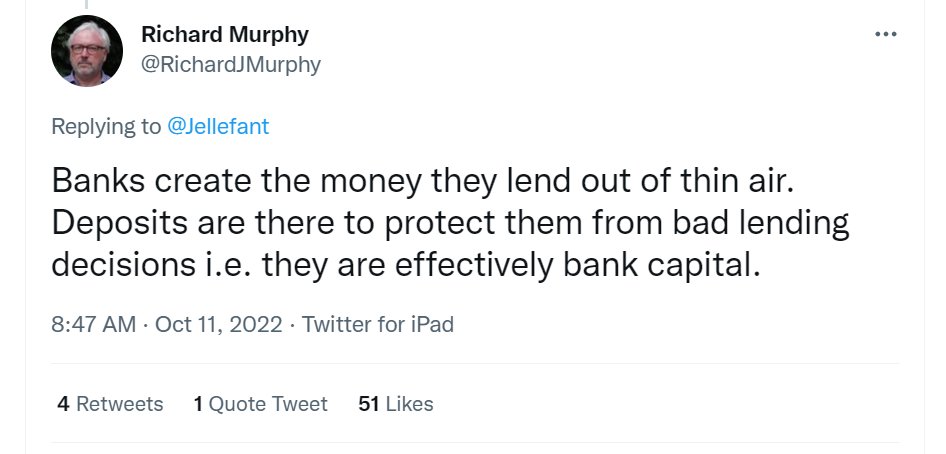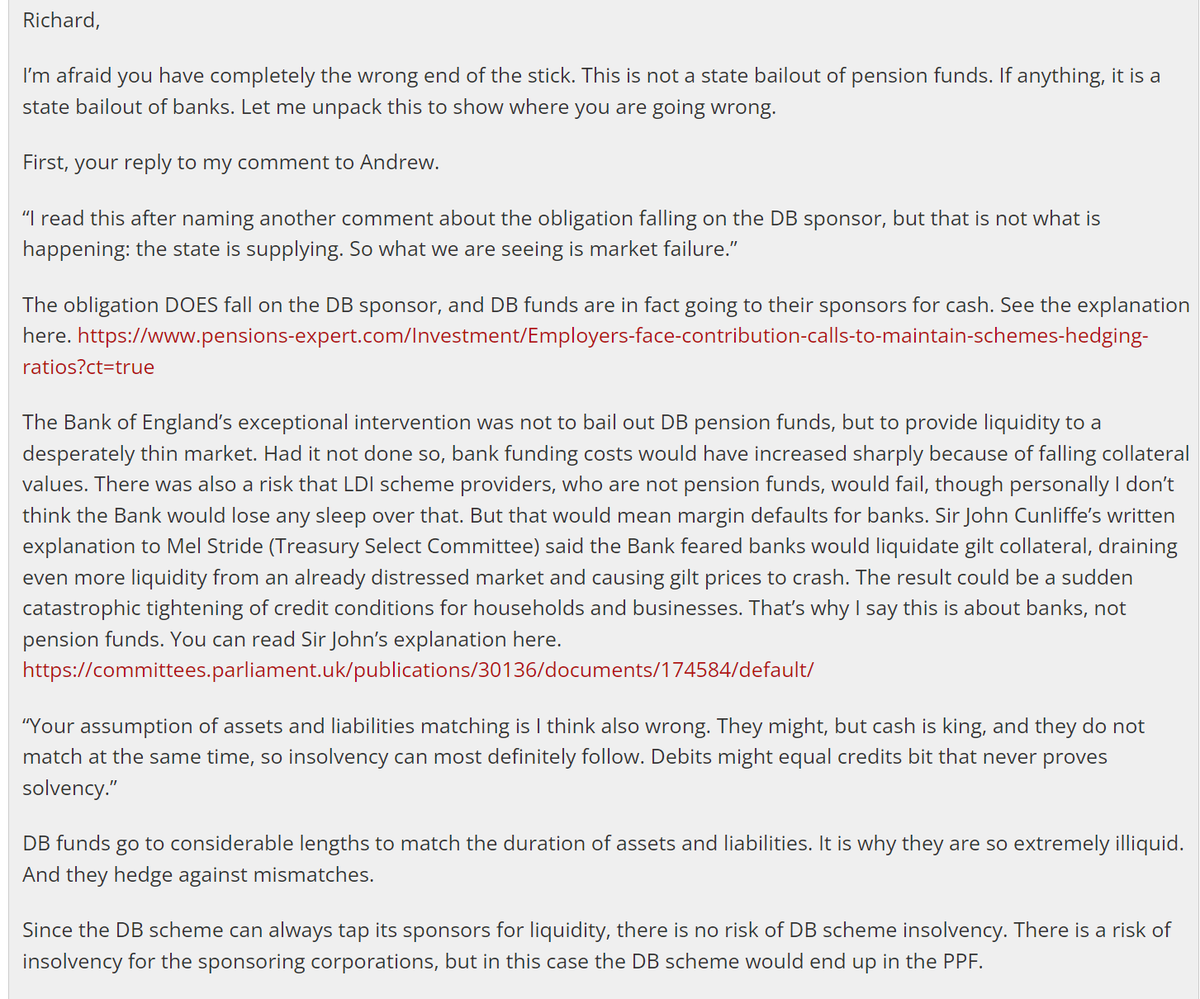
Just reading the Nobel Prize Committee's rationale for Bernanke's Nobel. It's all about his work on banks. But I am puzzled. The Great Recession exposed fundamental flaws in his work and that of Diamond & Dybvig who share his Nobel. 1/
All three failed to recognise in their models the "endogenous" nature of bank credit creation and its associated leverage. This failure to recognise and "lean against" the fragility caused by excessive leverage is what made the Great Recession so disastrous. 2/
The models of all three prizewinners assert that banks "channel" savings to investment by "lending out" a proportion of deposits. The Nobel Committee's writeup uncritically repeats this assertion. 3/
But we now know that this model of banking is dangerously wrong, because it omits the crucial leveraging effect of bank credit creation that is the key feature of the credit booms that always precede disastrous collapses like the Great Depression and Great Recession. 4/
Bernanke & Co analysed the busts, but did not understand the booms. 5/
So is their Nobel deserved? Hmm. I am not sure that it is. It gives authority to a fundamentally flawed model of banks which is to a considerable degree responsible for the policy errors that led to the disastrous 2007-8 financial crisis. /5
And as a result it makes life even harder for those of us who have been fighting for over a decade to replace the pervasive but wrong "money multiplier" myth in economic textbooks with models that accurately reflect what banks really do and how they affect the macroeconomy. 6/
(dear @Twitter it wpuld be really good if you introduced an automatic numbering facility for tweets in threads, I always lose count...)
To be sure, D&D's analysis of run dynamics is good, but it was half a century after the creation of the FDIC and thus really only a post hoc justification of something for which the US Congress had seen the need long before. Not sure why this deserves a Nobel. /8
Bernanke and Diamond's work on banks' role in productive investment and the importance of bank-borrower relationships has now been largely overtaken by credit scoring and collateralisation. Banks simply don't monitor individual credit risks as they describe. /9
Models of banking should describe what banks actually do, not what economists think they ought to do. /10
The fatal flaw that I described above - the belief that banks simply intermediate savings and borrowing - led central bankers to ignore the buildup of leverage prior to the Great Recession, focusing instead narrowly on inflation. Mervyn King later admitted this was a mistake. /11
More troublingly, it also led central bankers and governments AFTER the GFC to undertake what in my book I called the "Great Experiment", and The Economist dubbed the "Great Unfairness". Throwing money at banks in the hope of making them lend. /12
Because central bankers had ignored the buildup of leverage, they did not understand that households, businesses and - above all - banks were so over-leveraged they could not absorb more debt. 13/
And because they believed banks passively lent out pre-existing deposits to earn returns for depositors, they thought giving banks more money would make them lend more. So they gave them money. Lots and lots of it. 14/
The original rationale for QE was that throwing money at banks would make them lend. Even now, the Fed and ECB's explainers for QE still say this, though it was never true. 15/
Banks lend when the risk versus return equation is in their favour. In a damaged economy with a gloomy outlook, there's not much incentive for banks to lend, however much money you throw at them. 16/
So, several years after the GFC, and after $billions of QE, banks still weren't lending. And Bernanke and Co were scratching their heads wondering what had gone wrong. Their models said all that QE money should have sent bank lending to the moon. 17/
To its credit, the Bank of England right from the start suspected damaged banks weren't going to do much productive lending and therefore aimed its asset purchase programme at investors rather than banks. It was right. 18/
And it followed this up with ground-breaking research into how bank lending really works in a modern monetary economy. But the Bank's researchers didn't get a Nobel. No, that's been awarded to the people who got it wrong. Genius. 19/
Had Bernanke & Co correctly modelled bank lending in a modern monetary economy, they would not have given money to the banks. They would have given it to people. But because they did not understand bank lending, they tried to blow up another credit bubble. 20/
Bank lending actually recovered when the housing market did. This is hardly surprising, since banks nowadays mostly lend against real estate collateral, and most of that is residential property. House price crashes stop bank lending in its tracks. 21/
Had Bernanke & Co understood this they would have bailed out households to stop defaults and foreclosures on mortgages, not thrown insane amounts of money at banks. The Great Unfairness - bailing out banks and corporations, but not households - would never have been. 22/
So not only do I think this Nobel is undeserved, I think the fundamental misunderstanding of bank lending upon which Bernanke & Co's models are based has been immensely damaging. And will be again, unless it is ditched - which now it won't be. 23/
<rant over>
• • •
Missing some Tweet in this thread? You can try to
force a refresh













